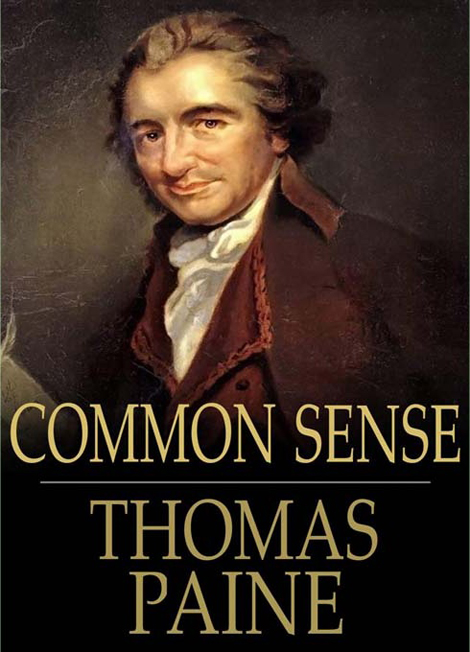REAL News for REAL People
Timeline of Events Leading to the Revolutionary War
April 14, 1775 - Massachusetts Governor Gage is secretly ordered by the British to enforce the Coercive Acts and suppress "open rebellion" among colonists by using all necessary force.
April 18, 1775 - General Gage orders 700 British soldiers to Concord to destroy the colonists' weapons depot. That night, Paul Revere and William Dawes are sent from Boston to warn colonists. Revere reaches Lexington about midnight and warns Sam Adams and John Hancock who are hiding out there. At dawn on April 19 about 70 armed Massachusetts militiamen stand face-to-face on Lexington Green with the British advance guard. An unordered 'shot heard around the world' begins the American Revolution. A volley of British muskets followed by a charge with bayonets leaves eight Americans dead and ten wounded. The British regroup and head for the depot in Concord, destroying the colonists' weapons and supplies. At the North Bridge in Concord, a British platoon is attacked by militiamen, with 14 casualties. British forces then begin a long retreat from Lexington back to Boston and are harassed and shot at all along the way by farmers and rebels, suffering over 250 casualties. News of the events at Lexington and Concord spreads like wildfire throughout the Colonies.
April 23, 1775 - The Provincial Congress in Massachusetts orders 13,600 American soldiers to be mobilized. Colonial volunteers from all over New England assemble and head for Boston, then establish camps around the city and begin a yearlong siege of British-held Boston.
May 10, 1775 - American forces led by Ethan Allen and Benedict Arnold capture Fort Ticonderoga in New York. The fort contains a much-needed supply of military equipment, including cannons which are then hauled to Boston by ox teams.
May 10, 1775 - The Second Continental Congress convenes in Philadelphia, with John Hancock elected as its president. On May 15, the Congress places the colonies in a state of defense. On June 15, the Congress unanimously votes to appoint George Washington general and commander-in-chief of the new Continental Army.
June 17, 1775 - The first major fight between British and American troops occurs at Boston in the Battle of Bunker Hill. American troops are dug in along the high ground of Breed's Hill (the actual location) and are attacked by a frontal assault of over 2,000 British soldiers who storm up the hill. The Americans are ordered not to fire until they can see "the whites of their eyes." As the British get within 15 paces, the Americans let loose a deadly volley of musketfire and halt the British advance. The British then regroup and attack 30 minutes later with the same result. A third attack, however, succeeds as the Americans run out of ammunition and are left only with bayonets and stones to defend themselves. The British succeed in taking the hill, but at a loss of half their force, over a thousand casualties, with the Americans losing about 400, including important colonial leader, General Joseph Warren.
July 3, 1775 - At Cambridge, Massachusetts, George Washington takes command of the Continental Army which now has about 17,000 men.
July 5, 1775 - The Continental Congress adopts the Olive Branch Petition which expresses hope for a reconciliation with Britain, appealing directly to the King for help in achieving this. In August, King George III refuses even to look at the petition and instead issues a proclamation declaring the Americans to be in a state of open rebellion.
July 6, 1775 - The Continental Congress issues a Declaration on the Causes and Necessity of Taking Up Arms detailing the colonists' reasons for fighting the British and states the Americans are "resolved to die free men rather than live as slaves."
July 26, 1775 - An American Post Office is established with Ben Franklin as Postmaster General.
November 28, 1775 - The American Navy is established by Congress. The next day, Congress appoints a secret committee to seek help from European nations.
December 23, 1775 - King George III issues a royal proclamation closing the American colonies to all commerce and trade, to take effect in March of 1776. Also in December, Congress is informed that France may offer support in the war against Britain.
January 5, 1776 - The assembly of New Hampshire adopts the first American state constitution.
January 9, 1776 - Thomas Paine's "Common Sense" is published in Philadelphia. The 50-page pamphlet is highly critical of King

Thomas Payne
1776 - In 1776, William Pitt addresses the House of Commons in England. He states that in his opinion, Great Britain had no right to lay a tax on the colonies without their consent. The Americans, he says, "are the subjects of this kingdom and equally entitled with yourselves to all the natural rights of mankind and the peculiar privileges of Englishmen - just as they are equally bound by its laws... The Americans are the sons not the bastards of England." [Avery and Abbatt, A History of the United States and its People: From Their Earliest Records to the Present Time (Vol. 5), pg. 70 ]
March 4-17, 1776 - American forces capture Dorchester Heights which overlooks Boston Harbor. Captured British artillery from Fort Ticonderoga is placed on the heights to enforce the siege against the British in Boston. The British evacuate Boston and set sail for Halifax. George Washington then rushes to New York to set up defenses, anticipating the British plan to invade New York City.
March 12, 1776 - The Halifax Resolves were the first official act by any of the thirteen colonies calling for independence from Great Britain. The state of North Carolina, on April 12, 1776, authorized her delegates to the Continental Congress to vote for independence. The 83 delegates present in Halifax at the Fourth Provincial Congress unanimously adopted the Halifax Resolves, which read as follows:
The Select Committee taking into Consideration the usurpations and violences attempted and committed by the King and Parliament of Britain against America, and the further Measures to be taken for frustrating the same, and for the better defense of this province reported as follows, to wit, it appears to your Committee that pursuant to the Plan concerted by the British Ministry for subjugating America, the King and Parliament of Great Britain have usurped a Power over the Persons and Properties of the People unlimited and uncontrouled and disregarding their humble Petitions for Peace, Liberty and safety, have made divers Legislative Acts, denouncing War Famine and every Species of Calamity daily employed in destroying the People and committing the most horrid devastations on the Country. That Governors in different Colonies have declared Protection to Slaves who should imbrue their Hands in the Blood of their Masters. That the Ships belonging to America are declared prizes of War and many of them have been violently seized and confiscated in consequence of which multitudes of the people have been destroyed or from easy circumstances reduced to the most Lamentable distress.
And whereas the moderation hitherto manifested by the United Colonies and their sincere desire to be reconciled to the mother Country on Constitutional Principles, have procured no mitigation of the aforesaid Wrongs and usurpations and no hopes remain of obtaining redress by those Means alone which have been hitherto tried, Your Committee are of Opinion that the house should enter into the following Resolve, to wit
Resolved that the delegates for this Colony in the Continental Congress be empowered to concur with the other delegates of the other Colonies in declaring Independency, and forming foreign Alliances, resolving to this Colony the Sole, and Exclusive right of forming a Constitution and Laws for this Colony, and of appointing delegates from time to time (under the direction of a general Representation thereof to meet the delegates of the other Colonies for such purposes as shall be hereafter pointed out.
April 6, 1776 - The Continental Congress declares colonial shipping ports open to all traffic except the British. The Congress had already authorized privateer raids on British ships and also advised disarming all Americans loyal to England.
April 12, 1776 - The North Carolina assembly is the first to empower its delegates in the Continental Congress to vote for independence from Britain.
May 2, 1776 - The American revolutionaries get the much-needed foreign support they had been hoping for. King Louis XVI of France commits one-million dollars in arms and munitions. Spain then also promises support.
May 10, 1776 - The Continental Congress authorizes each of the 13 colonies to form local (provincial) governments.
June 28, 1776 - In South Carolina, American forces at Fort Moultrie successfully defend Charleston against a British naval attack and inflict heavy damage on the fleet.
June-July 1776 - A massive British war fleet arrives in New York Harbor consisting of 30 battleships with 1,200 cannon, 30,000 soldiers, 10,000 sailors and 300 supply ships, under the command of General William Howe and his brother Admiral Lord Richard Howe.
Comments
|
|
Stan Deatherage said:
( July 4th, 2015 @ 12:17 pm )
I really don't understand why Obama's Fed and Treasury favor Wall Street over the real economy of the working man.
|
|
A most thorough listing of grave events. I have visited both England and the European nations to see their beauty. Compare that staid and controlled area to the wilderness of America and you know the real reason our ancestors left to hack out a new place in a wilderness~~~FREEDOM from oppression by the rich and titled of the Old World.
Now compare this to 2015 American and the renewed attempt to subject the masses of working people here to rich favoritism of Trickle Down Economics and Corporate favoritism. Are we going to take it or will we show them we have had enough, come 2016??? |
| The English Bill of Rights of 1689 | In the Past, Body & Soul | Beaufort County Medical Center Receives Special Gift for Women's Services |






















